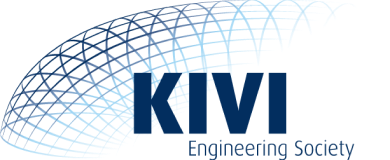
Mind the gap - Sink holes in Twente
Omschrijving
In Twente at 400 meters depth, there are several hundred giant cavities (caverns), which, from the beginning of the 20th century, have been formed as a result of the production of salt. It appears that 60 of these salt caverns were made too large. In these large caverns the risk of collapse and sink hole formation is high. How can we stabilize them? Is filling them with surplus hazardous residues from waste incinerators, so that the knife cuts both ways, an option? Unfortunately, no experience exists worldwide in the use of hazardous residues from waste incinerators for the stabilization of salt caverns. All hazards, uncertainties and costs should be clarified, and stakeholders have to be well informed.
In the afternoon a series of open lectures are given, followed by short introductions and a debate in the framework of Studium Generale during the evening.
This exchange of knowledge and debate by experts and stakeholders is in the interest of the social decision-making process concerning the use of the underground as storage for hazardous waste. This decision is expected to be made later in the year with a public consultation on the amendment of the development plan “Boeldershoek”.
AFTERNOON PROGRAM. Open to everyone after registration via KIVI-website
Chairman: Egbert van Hattem, Manager Science Shop Twente University
Prologue: Robert Geerts, Director of Engineering Company AVIV BV Risk analysis and risk management; Board Member KIVI, Section Risk Management Technique.
Lectures:
- Marinus den Hartogh, Geologist and Project Manager at AkzoNobel, Hengelo: “Pilot Stabilisation salt caverns Twente”
- Wolfgang Minkley, Geschäftsführer Institut für Gebirgsmechanik GmbH (IfG), Leipzig: "Integrität von Salzgesteinen und praktische Relevanz für die Verwahrung von Salzkavernen"
- Roland Weber, POPs Environmental Consulting, Schwäbisch Gmünd, Germany: "Contamination levels and associated risks of waste incineration fly ashes"
- Henk Zandvoort, Professor Philosophy Delft University: "Responsibility and liability of deposition of toxic waste in the underground"
Forum with speakers
EVENING PROGRAM. Program open to the general public - no registration needed.
Chairman: Peter Timmerman, Head of Studium Generale.
Introductions:
- Robert Hack, Geologist at Twente University/ITC and member of NL Comm. Environ. Assessment: "Introduction to the salt solution mining process and cavern formation"
- Wolfgang Minkley, Geschäftsführer Institut für Gebirgsmechanik GmbH, Leipzig: Summary of "Integrität von Salzgesteinen und praktische Relevanz für die Verwahrung von Salzkavernen"(The integrity of rock salt and its practical relevance for the management of salt caverns)
- Roland Weber, POPs Environmental Consulting, Schwäbisch Gmünd, Germany: Summary of "Contamination levels and associated risks of waste incineration fly ashes"
- Ibo van der Poel, Professor Philosophy Delft University: "Introduction to ethics of experimental tec
Locatie
Universiteit Twente Gallery/Vrijhof
Designlab / Amphitheater
Organisator
Regio Oost
Studium Generale, Stichting Huize Aarde
Naam en contactgegevens voor informatie
Elfride Dijkstra
Documenten
- Contamination levels and associated risks of waste incineration fly ashes - Roland Weber, POPs Environmental Consulting.pdf
- Responsibility and liability of deposition of toxic waste in the underground - Henk Zandvoort, TU Delft.pdf
- Introduction to the salt mining process and cavern formation - Robert Hack, UTwente.pdf
- Introduction to the salt mining process and cavern formation [abstract] - Robert Hack, UTwente.pdf
- New Technologies as Social Experiments - Ibo van der Poel, TU Delft.pdf
